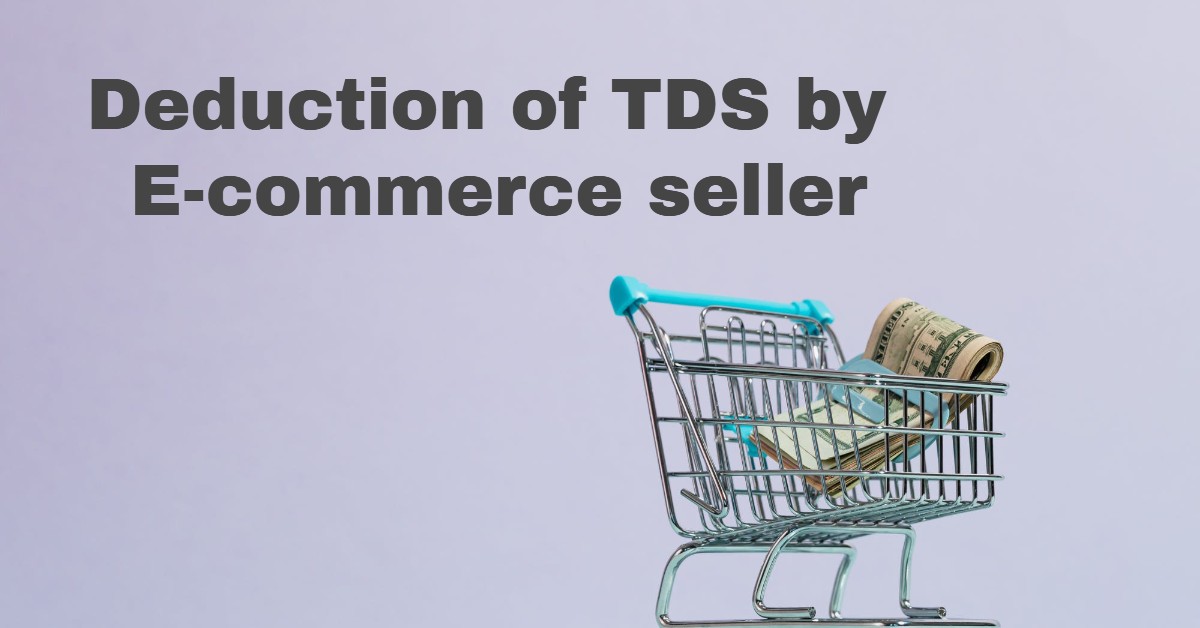An E-commerce seller is a seller who lists its products/services on E-commerce platforms like Amazon, Flipkart etc. The question is whether & what TDS do they require to deduct. The answer is- like any other business, TDS compliance apply to an E-commerce seller just like it applies to any other business & they are required to deduct TDS on basis the applicable thresholds & rates.
What are the payments/expenses on which TDS is required to be deducted?
Illustratively, TDS is required to be deducted on various expenses/payments such as:
- Salaries
- Interest
- Contracts
- Commission
- Rent
- Professional fees
- Technical fees
According to the nature of the expense/payment, there are threshold limits & rates at which TDS deduction has to be made.
Who is required to deduct TDS?
In the context of the topic, following persons are required to deduct TDS-
- Individual or Sole proprietorship & HUF (if they are liable to furnish or are furnishing Tax audit report under the Income tax act)
- Company
- LLP
- Partnership firm
- Society, AOP etc.
When do an E-commerce seller require to deduct TDS?
Since TDS provisions doesn’t distinguish between an e-commerce seller & other business. TDS provisions are applicable to E-commerce will be applicable as it is applicable to any other business.
- Thus, an Individual or HUF seller in the E-commerce platforms is required to deduct TDS if they are liable to furnish or are furnishing Tax audit report under the Income tax act
- Any other E-commerce seller, like a company, LLP etc. are required to deduct TDS even if Tax audit is not applicable.
Why do this topic need special mention & why is TDS ignored by E-commerce sellers?
E-commerce sellers are procuring a plethora of services from E-commerce platforms like Amazon, Flipkart etc. But they aren’t considering the TDS provisions, primarily because TDS is deducted at the time of making payments (or credit, whichever is earlier). Under E-commerce trade, these platforms collect the payment from the consumers & remits the payments to sellers as per their payment cycle after deducting their fees such as commission, advertisement, shipping, handling, marketing, collecting, storage, referral etc.
Now since the seller receives the net payment, the requirement to deduct TDS doesn’t occur to the sellers, even though TDS is applicable on all these fees charged by the e-commerce platforms.
Some sellers who know about the requirement of TDS, do not deduct TDS because they aren’t aware that there is a procedure prescribed by these platforms to claim back the refund of TDS by furnishing the TDS certificates to them.
Does an e-commerce seller require to deduct TDS even if e-commerce platform is deducting TDS on remittance made to sellers?
Absolutely Yes. E-commerce platforms are deducting TDS on remittances, this is governed by section 194O, which requires the platforms to deduct TDS on payments made to seller. Likewise, other sections require the sellers to deduct TDS on services procured from these platforms
Does the TDS comprise a cost to the seller?
No, it doesn’t. Since whatever TDS you deduct & deposit to the government shall be available as credit to the E-commerce platforms (once you file the TDS returns).
The platforms provide a refund of TDS on furnishing the TDS certificates, thus it doesn’t comprise a cost to the seller.
What are the requirements for deducting TDS?
You need to have TAN to deduct the TDS
What is the process to comply with the TDS provisions?
You are required to do the following to comply:
- Calculate TDS on basis the nature of services/expense & applicable sections
- Deposit TDS with the government on monthly basis by (7th of next month)
- File TDS return quarterly by end of next month after the quarter end
- Generate TDS certificates in form 16/16A
- Furnish TDS certificates to e-commerce platforms & claim refund
What are the consequences of not complying with TDS provisions?
Since Income tax Act requires to follow & comply the TDS provisions, not doing so attracts the following:
- Interest on late/non-deduction of TDS
- Penalty on late/non-deduction of TDS
- Penalty for late/non-filing of TDS returns
- Disallowance of expense due to non-compliance with TDS provisions
Disclaimer: The above post is only for the purpose of academic discussion and should not be construed as any legal opinion in any matter whatsoever.
The author is a CA in practice at Delhi and can be contacted at: E-mail: abhinandansethia90@gmail.com, Mobile: +91-9811741451
